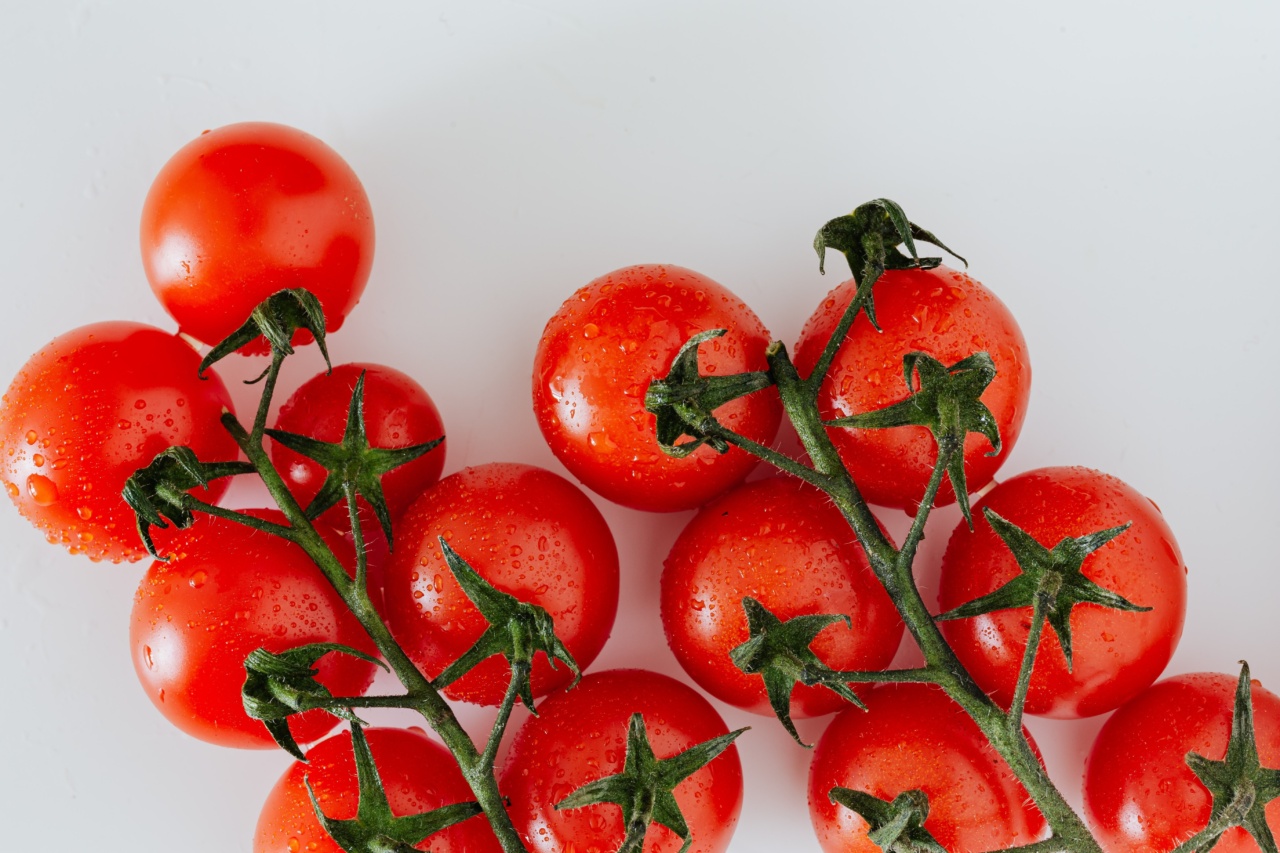Cancer is a complex disease that can be influenced by a variety of factors, including genetics, lifestyle choices, and environmental exposures.
While some of these factors are beyond our control, there are certain dietary habits that can significantly impact the growth and progression of cancer cells. One such diet is the inflammatory diet, which has been found to fuel cancer growth and increase the risk of developing various types of cancers.
What is the Inflammatory Diet?
The inflammatory diet is characterized by a high consumption of processed foods, refined sugars, unhealthy fats, and low intake of fruits, vegetables, whole grains, and lean proteins.
It typically includes foods that are rich in saturated and trans fats, such as fried foods, red meat, and full-fat dairy products. This type of diet is also low in fiber and antioxidant-rich foods, which are known to have protective effects against cancer.
Inflammation and Cancer
Inflammation is a natural response of the immune system to injury or infection. However, chronic inflammation can disrupt normal cell function and promote the growth of cancer cells.
The inflammatory diet triggers a state of chronic inflammation in the body, as it lacks the essential nutrients to combat inflammation and support a healthy immune system.
Research has shown that chronic inflammation can contribute to the development and progression of various types of cancer, including colorectal, lung, breast, and pancreatic cancer.
Inflammation promotes the growth of cancer cells, enhances their ability to invade nearby tissues, and increases the risk of metastasis, or the spread of cancer to other parts of the body.
The Role of Sugars and Unhealthy Fats
One of the key components of the inflammatory diet is a high intake of processed sugars and unhealthy fats.
These substances not only contribute to weight gain and obesity, but they also contribute to chronic inflammation and increase the risk of cancer development.
Processed sugars, such as those found in sodas, candies, and baked goods, have been linked to an increased risk of certain cancers, including pancreatic, colorectal, and breast cancer.
These sugars promote inflammation, spike insulin levels, and provide an abundant supply of energy for cancer cells to grow and multiply.
Unhealthy fats, such as trans fats and saturated fats, are commonly found in processed and fast foods. These fats not only contribute to weight gain and cardiovascular diseases but also stimulate inflammation in the body.
Inflammation, in turn, creates an environment that is favorable for tumor growth and progression.
The Importance of Antioxidants and Fiber
The inflammatory diet is also deficient in crucial dietary components that can help protect against cancer, such as antioxidants and fiber.
Antioxidants are substances that help neutralize harmful free radicals in the body, which can damage DNA and promote cancer development.
Fruits, vegetables, and whole grains are rich sources of antioxidants. These foods are also high in fiber, which plays a vital role in maintaining a healthy digestive system and preventing the development of colorectal cancer.
Fiber helps move waste products through the intestines more efficiently, minimizing the contact time between potential carcinogens and the intestinal lining.
Adopting an Anti-Inflammatory Diet
To reduce the risk of cancer and promote overall health, it is important to adopt an anti-inflammatory diet.
This means consuming a variety of fruits, vegetables, whole grains, and lean proteins while limiting the intake of processed foods, saturated fats, and sugars.
Some key principles of an anti-inflammatory diet include:.
1. Eat a Rainbow of Colors
Include a variety of colorful fruits and vegetables in your diet. Different colors indicate different antioxidant compounds, so aim to eat a rainbow of colors to ensure you are getting a wide range of protective nutrients.
2. Choose Healthy Fats
Opt for healthy fats, such as those found in avocados, nuts, seeds, and fatty fish like salmon. These fats have anti-inflammatory properties and provide essential nutrients for overall health.
3. Embrace Whole Grains
Replace refined grains with whole grains like quinoa, brown rice, and whole wheat bread. Whole grains are high in fiber, which helps promote healthy digestion and reduce the risk of colorectal cancer.
4. Limited Processed Foods and Sugars
Avoid or minimize the consumption of processed foods, sugary snacks, and beverages. These items are often high in unhealthy fats, sugars, and artificial additives that promote inflammation and increase cancer risk.
5. Cook at Home
Prepare meals at home using fresh, whole ingredients whenever possible. This allows you to have complete control over the quality and content of your meals, reducing your exposure to potentially harmful ingredients.
6. Stay Hydrated
Drinking enough water is crucial for overall health and can help flush out toxins from your body. Stay hydrated by drinking water throughout the day and limit the consumption of sugary beverages.
Conclusion
The inflammatory diet, characterized by a high consumption of processed foods, unhealthy fats, and low intake of fruits, vegetables, whole grains, and lean proteins, can fuel cancer growth and increase the risk of developing various types of cancers.
Chronic inflammation, triggered by this diet, promotes the growth and spread of cancer cells. Adopting an anti-inflammatory diet, rich in antioxidants, fiber, and healthy fats, can help reduce the risk of cancer and promote overall health.




























